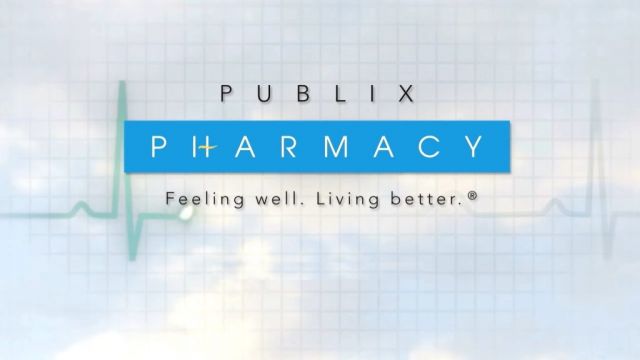Technology
Understanding Fibroscan and its Benefits

Fibroscan is a non-invasive diagnostic tool used to assess liver health. It provides valuable information about the stiffness of your liver, which can indicate the presence or progression of fibrosis, or scarring. This quick and painless procedure uses ultrasound technology to measure liver stiffness, providing important insights into your liver’s condition.
The key benefits of Fibroscan are numerous. It allows for early detection and monitoring of liver fibrosis, enabling timely intervention and treatment if necessary. It reduces the need for invasive biopsies, which can be uncomfortable and carry certain risks. Fibroscan provides a quantitative measurement that allows doctors to accurately track changes in liver health over time. With these advantages in mind, understanding how Fibroscan works and its potential benefits is crucial for anyone concerned about their liver health.
What is a Fibroscan?
What is a Fibroscan? It’s a non-invasive medical procedure that uses ultrasound technology to assess the health of your liver. During the test, a probe is placed on your skin, which sends pulses of energy into your liver. These pulses measure the stiffness or elasticity of your liver tissue, providing valuable information about its condition.
The key benefit of a Fibroscan is that it can detect liver fibrosis, which is the scarring and hardening of the liver caused by various conditions such as hepatitis B or C, alcohol abuse, or fatty liver disease. By measuring the level of stiffness in your liver tissue, doctors can determine how much damage has occurred and identify any underlying causes. This information helps guide treatment decisions and monitor the progression of liver disease over time.
Key Benefits of Fibroscan
Understanding the key benefits of Fibroscan can help you make informed decisions about your liver health. One major benefit is that it provides a non-invasive alternative to liver biopsies, which can be uncomfortable and carry risks. With Fibroscan, there’s no need for needles or anesthesia!
Another advantage is that Fibroscan results are immediate, giving you instant feedback on the condition of your liver. This allows healthcare professionals to quickly assess any signs of fibrosis or scarring without having to wait for lab results. Early detection is crucial in managing liver disease, and Fibroscan helps facilitate prompt intervention if necessary.
By highlighting these key benefits, we hope to encourage individuals to consider incorporating Fibroscan into their regular healthcare routine as a proactive measure against liver disease.
The Importance of Fibroscan Test Results
Understanding your Fibroscan test results is crucial for assessing the health of your liver. These results provide valuable information about the stiffness and fibrosis levels in your liver, which can indicate the presence of liver disease or damage.
By interpreting your liver elastography (FibroScan®) results, you can determine the severity of fibrosis and take appropriate action. Your liver stiffness result is used to calculate a fibrosis score, ranging from F0 (no fibrosis) to F4 (advanced cirrhosis). This score helps healthcare professionals understand the extent of liver damage and plan treatment accordingly.
It’s important to note that certain factors may influence your fibrosis results. Conditions such as inflammation, congestion, or ascites can affect the accuracy of Fibroscan readings. Therefore, it’s essential to discuss these potential influences with your healthcare provider when evaluating your test results. Stay informed about the importance of understanding and analyzing your Fibroscan test outcomes for better management of liver health!
Understanding Your Liver Elastography (FibroScan®) Results
Your liver elastography results are an essential part of understanding your liver health. This non-invasive test measures the stiffness of your liver, which can indicate the presence and severity of fibrosis or scarring.
When you receive your results, it’s important to know how to interpret them. The FibroScan® device provides a numerical measurement called a liver stiffness result, which is used to determine your fibrosis score. Understanding this score can help you and your doctor assess the progression of liver disease and make informed decisions about treatment options. It’s crucial to discuss these results with a healthcare professional who can provide guidance based on your individual situation. Stay informed about the significance of your FibroScan® results to better manage your liver health!
Using Your Liver Stiffness Result to Find Your Fibrosis Score
Once you’ve undergone a FibroScan test, your liver stiffness result can provide valuable information about the state of your liver health. The liver stiffness measurement is used to determine your fibrosis score, which indicates the level of scarring and damage present in your liver.
The fibrosis score ranges from F0 to F4, with F0 indicating no scarring and F4 indicating severe scarring or cirrhosis. By analyzing your liver stiffness result, doctors can accurately assess the stage of fibrosis and make informed decisions regarding treatment plans or monitoring strategies. It’s important to note that early detection and intervention are crucial in preventing further progression of liver disease. So if you receive a high fibrosis score, it’s essential to consult with a healthcare professional for appropriate management options.
Conditions That Can Affect Your Fibrosis Results
It is important to note that there are certain conditions that can impact the accuracy of your fibrosis results. One such condition is obesity, as excess body fat can affect liver stiffness measurements. Additionally, inflammation in the liver caused by conditions like hepatitis or fatty liver disease can also lead to inaccurate fibrosis results.
Another factor to consider is alcohol consumption. If you have been drinking heavily prior to your fibroscan, it may affect the stiffness of your liver and skew the results. It’s crucial to be honest about your alcohol intake with your healthcare provider so they can take this into account when interpreting your fibroscan results.
Remember, these are just a few examples of conditions that can influence fibrosis results. It’s always best to discuss any potential factors that may impact the accuracy of your test with a healthcare professional for a comprehensive understanding of your specific situation. Stay informed and empowered in managing your liver health!
Professor Patrick Kennedy and Fibroscan
One of the leading experts in the field of liver disease, Professor Patrick Kennedy, has been at the forefront of using Fibroscan technology to assess liver health. With his extensive knowledge and experience, he has contributed significantly to advancements in understanding liver fibrosis.
Professor Patrick Kennedy is not only an expert clinician but also a renowned researcher. He has conducted numerous studies exploring the effectiveness of Fibroscan as a non-invasive method for assessing liver stiffness and diagnosing fibrosis. His expertise in this area makes him a trusted authority on all matters related to Fibroscan testing.
With his passion for raising awareness about liver disease, Professor Patrick Kennedy has made appearances on various platforms, including BBC’s ‘Drinkers Like Me.’ Through these engagements, he aims to educate the public about the importance of early detection and intervention when it comes to liver health.
Professor Patrick Kennedy’s contributions to the field of Fibroscan technology have been invaluable. His expertise and dedication are evident in his research efforts and advocacy work. By continuing to stay informed about his work, you can gain valuable insights into how Fibroscan can help assess your liver health accurately.
Professor Patrick Kennedy Performing A Fibroscan
When it comes to performing a Fibroscan, there’s one expert who stands out: Professor Patrick Kennedy. With years of experience and expertise in liver disease, Professor Kennedy has become a trusted authority in the field. His dedication to helping patients understand their liver health is evident in his approach to conducting Fibroscans.
During a Fibroscan procedure, Professor Patrick Kennedy uses state-of-the-art technology to assess liver stiffness and determine the presence of fibrosis. With his gentle touch and reassuring demeanor, he puts patients at ease throughout the entire process. Whether you’re experiencing symptoms or simply want to monitor your liver health, having Professor Kennedy perform your Fibroscan ensures accuracy and peace of mind.
By highlighting the knowledge and skills that make him an exceptional clinician, Professor Patrick Kennedy continues to make a significant impact on the field of liver disease diagnosis and management.
Professor Patrick Kennedy Featured On BBC’s ‘Drinkers Like Me’
If you’re interested in learning more about Fibroscan and its benefits, you might want to check out the episode of BBC’s ‘Drinkers Like Me’ featuring Professor Patrick Kennedy. In this eye-opening documentary, Professor Kennedy shares his expertise on liver health and the role that Fibroscan plays in diagnosing liver disease.
During the show, viewers get a firsthand look at how Fibroscan works and why it is such an essential tool for assessing liver health. As Professor Kennedy explains the significance of liver stiffness measurements, you’ll gain a better understanding of how this non-invasive procedure can provide valuable insights into your liver’s condition.
So if you’re curious about Fibroscan and want to see it in action, don’t miss Professor Patrick Kennedy’s appearance on ‘Drinkers Like Me’. It’s a fascinating exploration of the impact alcohol consumption can have on our livers and how technologies like Fibroscan are revolutionizing early detection and treatment options.
Getting a Fibroscan and Making Appointments
Make an appointment for a Fibroscan easily by contacting our dedicated clinician access number. Our friendly team is here to assist you and answer any questions you may have about the procedure. Whether you’re concerned about your liver health or simply want to monitor your fibrosis score, we’re here to help.
If you prefer speaking to a care advisor, feel free to reach out and discuss your options. They can guide you through the process and provide all the necessary information. Keep in mind that NHS appointments require a GP referral, so make sure to consult with your doctor beforehand. For any NHS enquiries, please contact the appropriate department directly. If you have academic or general inquiries, don’t hesitate to get in touch with us. And if you’re a private patient seeking more information on Fibroscan or wish to schedule an appointment, our team is ready to assist you as well.
Make an appointment
Making an appointment for a Fibroscan is quick and easy. Whether you’re concerned about your liver health or want to monitor the progress of a liver condition, scheduling a Fibroscan is an important step towards understanding your liver’s condition.
To make an appointment, simply reach out to our clinic using our dedicated clinician access number. Our friendly staff will assist you in finding the earliest available slot that suits your schedule. Alternatively, if you prefer to speak with a care advisor first, they can provide guidance on whether a Fibroscan is right for you and help answer any questions or concerns you may have.
Don’t delay taking control of your liver health. Contact us today to book your Fibroscan and gain valuable insights into the state of your liver!
Speak to a care advisor
If you have questions or concerns about getting a Fibroscan, speaking to a care advisor can provide the guidance and support you need. These knowledgeable professionals are there to help answer your queries and address any uncertainties you may have about the process. They can offer information on how to schedule an appointment, what to expect during the procedure, and how to interpret your results. By speaking with a care advisor, you can gain peace of mind knowing that you are making informed decisions about your liver health.
Reaching out to a care advisor is easy. Simply give them a call or send an email expressing your interest in discussing Fibroscan options. They will be more than happy to assist you in navigating through the necessary steps for scheduling your appointment and addressing any additional concerns or questions that may arise along the way. With their expert advice and guidance, you can feel supported throughout every stage of this important diagnostic process. Don’t hesitate; speak with a care advisor today!
CALL OUR DEDICATED CLINICIAN ACCESS NUMBER
If you’re ready to take control of your liver health and book a Fibroscan appointment, our dedicated clinician access number is here to help. With just a simple call, you can connect with our knowledgeable and friendly team who will guide you through the process. Whether you have questions about the procedure or need assistance scheduling an appointment, our experts are available to provide support every step of the way.
Don’t hesitate to reach out today! Our clinicians are eager to assist you in getting started on your journey towards understanding your liver’s condition and taking proactive measures for better health. Give us a call now and let us help you prioritize your well-being.
NHS appointments require a GP referral
NHS appointments require a GP referral. This means that in order to get a Fibroscan through the NHS, you will need to consult with your general practitioner first. They will assess your condition and if necessary. They can refer you to a specialist who can perform the Fibroscan test. It’s important to follow this process as it ensures. That you receive proper medical care and guidance throughout the diagnostic journey.
By requiring a GP referral for NHS appointments, the healthcare system aims to streamline patient care and ensure that individuals are directed to the most suitable specialists for their specific needs. Your general practitioner plays a crucial role in managing your overall health and well-being, so it’s always beneficial to involve them in any medical decisions or referrals. Don’t hesitate to reach out to your doctor if you believe a Fibroscan could be beneficial for diagnosing or monitoring liver conditions.
NHS Enquiries
Are you in the UK and interested in getting a Fibroscan through the NHS? If so, you may have some questions or need assistance. The NHS Enquiries team is here to help! They can provide information on how to access the Fibroscan test and assist with any queries or concerns you may have.
To get in touch with the NHS Enquiries team, simply give them a call or send an email. They are dedicated to ensuring that patients receive the care they need and can guide you through the process of obtaining a Fibroscan appointment. Don’t hesitate to reach out if you have any questions about eligibility, referrals, or anything else related to your liver health. Your well-being is their priority!
Academic & General Enquiries
If you have any academic or general inquiries about Fibroscan and liver disease, we are here to help! Our team of experts is ready to answer any questions you may have. Whether you’re a researcher looking for more information or someone seeking knowledge about the topic, we can provide the assistance you need.
Feel free to reach out to us with your queries. We understand that staying informed is crucial when it comes to managing liver health, and our goal is to ensure that you have access to accurate and up-to-date information. So don’t hesitate – get in touch with us today and let us assist you in your quest for knowledge!
Private Patient Enquiries
If you’re considering getting a Fibroscan as a private patient, we are here to assist you every step of the way. Our dedicated team is available to answer any questions or concerns you may have regarding the procedure, cost, and scheduling. We understand that your health is important to you, and we want to ensure that your experience with us is seamless and stress-free.
To inquire about private patient appointments or for more information, please reach out to our care advisors who will be happy to assist you. They can provide detailed information on pricing options and help book your appointment at a time convenient for you. Don’t hesitate – take control of your liver health today!
Stay Updated on Fibroscan and Liver Disease
Staying informed about the latest advancements in fibroscan technology and liver disease research is crucial for managing your health effectively. By staying updated, you can stay ahead of any potential issues and take proactive steps towards maintaining a healthy liver.
One way to stay updated is by signing up for updates from reputable sources such as medical journals or healthcare organizations. These updates will provide you with valuable information on new studies, treatment options, and breakthroughs in fibroscan technology. Additionally, following credible websites or social media pages dedicated to liver health can keep you informed about the latest news and developments in the field.
Remember, knowledge is power when it comes to your health. Stay connected and never miss out on important updates that could potentially impact your well-being.
Sign up for updates
Stay informed about the latest advancements in Fibroscan and liver disease by signing up for updates. By joining our mailing list, you will receive regular newsletters and notifications about new research findings, treatment options, and clinical trials. Don’t miss out on important information that could potentially improve your liver health.
Signing up is quick and easy. Simply provide us with your email address, and we’ll ensure that you stay in the loop with all things related to Fibroscan. Our updates are designed to be informative, accessible, and tailored to your specific interests. We understand the importance of staying well-informed when it comes to managing liver disease, so sign up today!
Giving Your Feedback on Fibroscan
Have you recently undergone a Fibroscan test? We value your opinion and want to hear about your experience! At our clinic, we understand the importance of feedback in improving our services and ensuring that every patient receives the best possible care.
Your feedback allows us to continually assess and enhance our processes. Whether it’s positive or constructive, we appreciate all input as it helps us make informed decisions for the benefit of future patients. So don’t hesitate – share your thoughts with us today and help us improve the Fibroscan experience for everyone!
Remember, your feedback matters! It not only helps us provide better care but also contributes to advancements in liver disease diagnosis and treatment. Together, let’s work towards creating a brighter future for individuals living with liver conditions. Take a few moments to tell us what you think about your Fibroscan test – we’re here to listen!
Tell us what you think
We value your feedback and insights. If you have undergone a Fibroscan or have any experience with liver disease, we would love to hear from you. Share your thoughts, questions, or suggestions with us.
Your input can help us improve our services and provide better support for individuals living with liver conditions. Whether it’s about the Fibroscan test itself, Professor Patrick Kennedy’s expertise, or any other aspect related to liver health, we are here to listen.
To share your feedback on Fibroscan and liver disease. Simply reach out to us through our website or contact our dedicated clinic access number. Your voice matters in shaping how we continue to offer effective solutions and raise awareness about liver health.
Technology
LeiaPix Converter: Easy 2D to 3D Conversion

Introduction
In a world where digital visuals are paramount, enhancing your images can make a significant difference. Whether you’re a photographer, digital artist, or marketer, LeiaPix Converter offers an exciting way to turn your flat, 2D images into engaging 3D visuals. Let’s dive into how this innovative tool can transform your creative projects.
What is LeiaPix Converter?
Definition and Purpose
LeiaPix Converter is a groundbreaking web application designed to convert traditional 2D photos into mesmerizing 3D images. By leveraging advanced AI technology, LeiaPix Converter generates depth maps that bring a new dimension to your visuals. This tool is perfect for anyone looking to add depth and dynamism to their images without requiring extensive 3D modeling expertise.

How It Works
LeiaPix Converter uses sophisticated algorithms to analyze the depth and contours of your 2D images. It then creates a depth map, which translates the flat image into a three-dimensional space. This process adds layers of depth, making your photos look more immersive and engaging.
Key Features of LeiaPix Converter
AI Technology
The heart of LeiaPix Converter lies in its use of artificial intelligence. The AI algorithms meticulously scan your images to create accurate depth maps, ensuring that the 3D effect is realistic and captivating.
Depth Map Generation
Depth maps are essential for creating 3D effects. LeiaPix Converter’s advanced depth map generation transforms ordinary images into dynamic 3D visuals by analyzing various depth levels within the image.
User-Friendly Interface
LeiaPix Converter boasts a clean and intuitive interface, making it accessible for both beginners and experienced users. With simple controls and straightforward steps, converting your images to 3D has never been easier.
Benefits of Using LeiaPix Converter
Enhanced Visual Appeal
One of the primary benefits of using LeiaPix Converter is the enhanced visual appeal of your images. The added depth and dimension make your visuals stand out, whether you’re showcasing artwork or promoting a product.
No Need for Advanced 3D Skills
Unlike traditional 3D modeling software, LeiaPix Converter doesn’t require advanced 3D skills. Its AI-driven process simplifies the conversion, allowing you to achieve impressive 3D effects without a steep learning curve.
Free Accessibility
LeiaPix Converter is available for free, making it an excellent tool for users on a budget. You can enjoy the full range of features without any cost, making it a valuable resource for digital creators of all kinds.
How to Use LeiaPix Converter
Step-by-Step Guide
Using LeiaPix Converter is straightforward. Here’s a step-by-step guide to help you get started:
- Upload Your Image: Start by uploading the 2D image you want to convert. LeiaPix Converter supports various file formats, including JPEG and PNG.
- Adjust Settings: Customize the depth settings to your liking. You can adjust parameters such as depth intensity and 3D effect strength to fine-tune the result.
- Download Your 3D Image: Once you’re satisfied with the adjustments, click the “Convert” button. After processing, download your newly created 3D image.
Uploading Your Image
Ensure your image is of high quality for the best results. The clearer the image, the more accurate the depth map will be, leading to a more impressive 3D effect.
Adjusting Settings
Experiment with different settings to find the perfect balance. You can tweak depth levels, shadows, and highlights to match your creative vision.
Downloading Your 3D Image
After conversion, download the 3D image to your device. You can now use it for various applications, from digital art to marketing materials.
Applications of 3D Images
Digital Art
Artists can use LeiaPix Converter to add a new dimension to their work. The 3D effects can make digital art pieces more engaging and visually striking.
Photography
Photographers can enhance their portfolios by turning 2D photos into 3D images. This added depth can make images more captivating and memorable.
Marketing and Social Media
In marketing and social media, eye-catching visuals are crucial. 3D images can draw more attention and increase engagement with your content.
Comparing LeiaPix Converter to Other Tools
LeiaPix vs. Traditional 3D Software
Traditional 3D software often requires extensive training and expertise. In contrast, LeiaPix Converter simplifies the process with its AI-driven approach, making 3D conversion accessible to everyone.
LeiaPix vs. Other AI 3D Converters
While there are other AI-powered 3D converters, LeiaPix stands out for its ease of use and effectiveness. Its depth map generation ensures high-quality 3D results with minimal effort.
Common Issues and Troubleshooting
Image Quality Problems
If your image quality isn’t up to par, ensure it’s high-resolution and clear. Low-quality images may produce subpar 3D effects.
Depth Map Errors
Occasionally, the depth map may not be perfect. Adjust the settings to improve accuracy or try uploading a different image.
Fixing Common Glitches
Restarting the tool or re-uploading the image can often resolve minor glitches. If problems persist, consult the LeiaPix support team for assistance.
Advanced Tips and Tricks
Optimizing Image Quality
For the best results, use high-resolution images. The more detail in your photo, the better the depth map and overall 3D effect.
Using LeiaPix Converter for Different Image Types
Experiment with various types of images, from portraits to landscapes. Each type may require different settings to achieve the best 3D effect.
Combining LeiaPix with Other Tools
You can enhance your 3D images further by combining LeiaPix with other editing tools. Use photo editors to fine-tune details and add finishing touches.
Case Studies and Success Stories
Examples of Stunning Transformations
Many users have achieved impressive results with LeiaPix Converter. From breathtaking digital art to captivating marketing visuals, the possibilities are endless.
User Experiences
User testimonials highlight how LeiaPix Converter has transformed their projects. Whether for personal or professional use, the feedback is overwhelmingly positive.
Conclusion
In summary, LeiaPix Converter is a powerful and accessible tool for transforming 2D images into dynamic 3D visuals. Its AI-driven technology simplifies the process, making it easy for anyone to enhance their images. Whether you’re a digital artist, photographer, or marketer, LeiaPix Converter offers a simple yet effective way to add depth and engagement to your visual content.
FAQs
What file formats does Lei’aPix Converter support?
LeiaPix Converter supports common file formats like JPEG and PNG.
Can Lei’aPix Converter handle high-resolution images?
Yes, Lei’aPix Converter can process high-resolution images to deliver detailed 3D effects.
Is Lei’aPix Converter free to use?
Yes, Lei’aPix Converter is available for free, offering all its features without any cost.
How long does it take to convert an image?
The conversion time depends on the image size and complexity, but it typically takes just a few minutes.
Are there any limitations on image size?
While there’s no strict size limit, very large images may take longer to process. For optimal results, use standard image sizes.
Technology
How Digital Art Ankinsart is Shaping the Future of Artistic Expression

Introduction
Digital art has revolutionized the way we think about creativity and expression. Among the numerous styles and techniques, Digital Art Ankinsart stands out as a leading force shaping the future of artistic expression. This innovative approach blends advanced technology with artistic vision, offering fresh perspectives and redefining traditional boundaries.
What is Digital Art Ankinsart?

Digital Art Ankinsart represents a modern evolution in the world of digital artistry. Rooted in the broader context of digital art, Ankinsart is characterized by its distinctive techniques and methodologies. It encompasses a wide range of styles, each unique in its approach but unified by the use of digital tools.
The Rise of Digital Art
The evolution of digital art can be traced back to the advent of computer technology. From rudimentary pixel art to sophisticated digital masterpieces, the journey has been marked by significant milestones. Technological advancements have played a crucial role, enabling artists to explore new realms of creativity.
Key Features of Ankinsart
Ankinsart is recognized for its unique features that set it apart from traditional digital art. Key aspects include:
- Unique Techniques: Ankinsart employs distinctive methods to create visually striking pieces.
- Tools and Software: Artists utilize advanced software and hardware to bring their visions to life.
How Ankinsart is Transforming Artistic Expression
Digital Art Ankinsart is transforming artistic expression by breaking away from conventional norms. It offers new possibilities, allowing artists to explore uncharted territories and push the boundaries of traditional art forms. This innovation fosters a fresh perspective on creativity and artistic exploration.
The Creative Process Behind Ankinsart
The creation of Ankinsart involves several stages:
- Conceptualization: Artists begin with brainstorming and sketching initial ideas.
- Execution and Refinement: Using digital tools, they bring their concepts to life, refining their work through various iterations.
Case Studies of Notable Ankinsart Works
To understand the impact of Ankinsart, let’s look at some notable examples:
- Example 1: This piece exemplifies Ankinsart’s ability to blend technology with artistry, resulting in a groundbreaking visual experience.
- Example 2: Another significant work that showcases innovations introduced by Ankinsart, influencing the digital art community.
The Role of Technology in Digital Art Ankinsart
Technology is at the heart of Ankinsart. Key elements include:
- Software and Hardware Integration: The seamless combination of digital tools enhances the creative process.
- Impact on Creativity: Advanced technology expands artistic possibilities and allows for greater experimentation.
Challenges and Criticisms of Digital Art
Despite its advancements, digital art faces challenges and criticisms:
- Common Criticisms: Some argue that digital art lacks the authenticity of traditional mediums.
- Overcoming Challenges: Artists continually adapt and innovate to address these critiques and advance the field.
Future Trends in Digital Art Ankinsart
The future of Digital Art Ankinsart is bright, with several trends emerging:
- Emerging Techniques: New methods and technologies will continue to evolve.
- Predictions: Expectations for the future include even more integration of technology and art.
Ankinsart in the Commercial World
Ankinsart is making significant strides in the commercial realm:
- Market Trends: The demand for digital art is growing, with Ankinsart leading the charge.
- Opportunities for Artists: There are increasing opportunities for artists to showcase and monetize their work.
The Influence of Ankinsart on Other Art Forms
Ankinsart’s influence extends beyond digital art:
- Cross-Medium Influences: It has inspired and collaborated with other art forms, creating a rich, interdisciplinary dialogue.
- Collaborative Projects: Joint ventures between Ankinsart and other artistic disciplines highlight its broad impact.
How to Get Started with Digital Art Ankinsart
For those interested in exploring Ankinsart:
- Tools and Resources: Various software and resources are available to help beginners get started.
- Learning and Development: Continuous learning and practice are key to mastering Ankinsart techniques.
Conclusion
Digital Art Ankinsart is not just a style but a movement that is reshaping artistic expression. By merging technology with creativity, it offers new opportunities and challenges traditional notions of art. As we look to the future, Ankinsart promises to be at the forefront of artistic innovation, continually pushing the boundaries of what is possible.
FAQs
What distinguishes Ankinsart from other digi’tal art styles?
Ankinsart is unique due to its specific techniques and integration of advanced digital tools, setting it apart from other digital art forms.
What are some popular tools used in Ankinsart?
Common tools include advanced graphic design software and high-performance tablets, which facilitate intricate and detailed artistic creation.
How has Ankinsart influenced traditional art forms?
Ankinsart has introduced new techniques and concepts that have inspired and blended with traditional art forms, leading to innovative cross-medium works.
What future trends should we expect in digital art?
Emerging trends include increased use of virtual and augmented reality, more interactive art experiences, and continued advancements in digital technology.
Where can I learn more about digi’tal art Ankinsart?
To learn more, explore online courses, tutorials, and forums dedicated to digi’tal art and Ankinsart. Many artists also share insights through their social media and personal websites.
Technology
yPredict: Innovative Predictive Tools for Advanced Traders

Introduction
In today’s fast-paced financial markets, having the edge can make all the difference between success and missed opportunities. Enter yPredict, a groundbreaking platform that merges artificial intelligence and machine learning to deliver sophisticated trading tools. Whether you’re an experienced trader or just starting out, yPredict’s innovative approach offers valuable insights and predictive capabilities that could transform your trading strategies. In this article, we will explore how yPredict stands out, its features, and how it can benefit advanced traders.
What is yPredict?
yPredict is a sophisticated trading research and analysis platform operating on the Polygon network. Designed for serious traders, it uses advanced algorithms to analyze vast amounts of financial data, providing users with predictive tools that can enhance their trading performance. The platform’s focus on AI and machine learning makes it a powerful tool for those looking to gain an edge in the competitive trading landscape.
The Technology Behind yPredict
At the core of yPredict’s innovation are its technological foundations. The platform employs a combination of AI and machine learning to process and analyze financial data. This technology allows for the creation of predictive models that offer actionable insights, helping traders to anticipate market movements and adjust their strategies accordingly.
Key Features of yPredict
1. Advanced Predictive Models: yPredict uses machine learning to develop sophisticated predictive models that can forecast market trends with high accuracy.
2. Real-Time Data Analysis: The platform provides real-time data analysis, enabling traders to make timely decisions based on the most current information.
3. User-Friendly Interface: Despite its advanced technology, yPredict offers an intuitive and easy-to-navigate interface, making it accessible for both novice and experienced traders.
4. Comprehensive Market Coverage: yPredict covers a wide range of financial markets, including stocks, cryptocurrencies, and forex, offering versatile tools for various trading needs.
How yPredict Enhances Trading Strategies
yPredict enhances trading strategies by providing actionable insights derived from its predictive models. Traders can use these insights to identify potential opportunities, minimize risks, and optimize their trading decisions. The platform’s ability to analyze large datasets and generate forecasts helps traders stay ahead of the curve and make data-driven decisions.
Benefits of Using yPredict for Advanced Traders
1. Increased Accuracy: Advanced predictive models improve the accuracy of market forecasts, leading to better trading decisions.
2. Time Efficiency: Real-time data analysis saves time by quickly processing large volumes of information and highlighting key insights.
3. Enhanced Decision-Making: Access to sophisticated tools and predictions helps traders make more informed and strategic decisions.
4. Versatility: yPredict’s broad market coverage allows traders to apply its tools across different financial markets.
Understanding the Polygon Network Integration
yPredict operates on the Polygon network, which is known for its scalability and low transaction costs. This integration ensures that users benefit from fast and efficient data processing, enhancing the overall performance of the platform. Polygon’s infrastructure supports yPredict’s sophisticated algorithms and provides a robust foundation for its predictive tools.
Artificial Intelligence in yPredict
AI is central to yPredict’s functionality. The platform uses AI to analyze historical and real-time data, identify patterns, and generate predictions. This technology enables yPredict to offer insights that are both accurate and actionable, helping traders navigate complex financial markets.
Machine Learning Algorithms
Machine learning algorithms are employed to refine predictive models continuously. By learning from past data and adjusting to new information, these algorithms improve the accuracy of predictions over time. yPredict’s use of machine learning ensures that its tools remain effective and relevant in a dynamic trading environment.
DAO Verification and Its Importance
One of yPredict’s unique features is its DAO (Decentralized Autonomous Organization) verification process. DAO members review and verify the platform’s trading models, ensuring their reliability and accuracy. This decentralized approach adds an extra layer of credibility to yPredict’s predictive tools and fosters trust within the trading community.
Comparing yPredict with Other Trading Platforms
When compared to other trading platforms, yPredict stands out for its advanced use of AI and machine learning. While many platforms offer basic analytics, yPredict’s predictive models and real-time data analysis provide a higher level of insight. Its integration with the Polygon network further distinguishes it by offering faster and more cost-effective transactions.
Real-Life Applications of yPredict
Traders have used yPredict to enhance their strategies across various markets. For instance, cryptocurrency traders utilize its predictive models to forecast price movements, while stock traders use real-time analysis to make timely investment decisions. The platform’s versatility and accuracy have made it a valuable tool for many in the trading community.
How to Get Started with yPredict
Getting started with yPredict is straightforward. Interested traders can sign up on the platform’s website, set up their accounts, and begin exploring its features. The user-friendly interface and comprehensive resources available on the platform make it easy to start leveraging yPredict’s advanced tools.
User Experiences and Testimonials
Many users have reported positive experiences with yPredict, highlighting its effectiveness in enhancing their trading strategies. Testimonials often praise the platform’s accuracy, ease of use, and the value it adds to their trading activities. These user experiences underscore yPredict’s reputation as a leading tool for advanced traders.
Conclusion
The 2024 GNU Gremlin is not just another snowboard; it represents a significant advancement in snowboarding technology. Its unique features, including the retro shape, mid flex, and C3 Aggressive All Terrain Contour, make it a standout choice for advanced riders. By integrating these features into a single board, the Gremlin delivers exceptional performance across various conditions, from powder to icy groomers. Whether you’re an experienced rider or looking to step up your game, the GNU Gremlin offers the tools you need to tackle the mountain with confidence and style.
FAQs
What makes yPredict different from other trading platforms?
yPredict differentiates itself with its advanced use of AI and machine learning, providing sophisticated predictive models and real-time data analysis that other platforms may not offer.
How does yPredict ensure the accuracy of its predictive models?
yPredict’s models are verified by DAO members, adding an extra layer of credibility and ensuring their reliability and accuracy.
Can yPredict be used for different types of trading?
Yes, yPredict covers various financial markets, including stocks, cryptocurrencies, and forex, making it a versatile tool for different trading needs.
What are the benefits of using AI in trading platforms like yPredict?
AI enhances trading platforms by providing accurate predictions, analyzing large datasets quickly, and offering actionable insights that improve trading strategies.
How do I get started with yPredict?
To get started with yPredict, sign up on the platform’s website, set up your account, and explore its features through the user-friendly interface and available resources.
-

 Shops1 year ago
Shops1 year agoPublix Pharmacy Hours and Locations
-

 Shops1 year ago
Shops1 year agoStaples Store Hours: What Time Does Staples Open And Close?
-

 Shops2 years ago
Shops2 years agoWalmart Vision Center Hours
-

 Shops1 year ago
Shops1 year agoWalgreen Pharmacy Hours: What Time Does It Open & Close?
-

 Business2 years ago
Business2 years agoDesigner Clothing: Making a Statement
-

 Entertainment2 years ago
Entertainment2 years agoRoku Red, White, and Blue: Streaming the cultural heart of America
-

 Shops1 year ago
Shops1 year agoWalmart Deli Open & Close Hours
-

 Shops2 years ago
Shops2 years agoKroger Deli Hours & Store Locations
